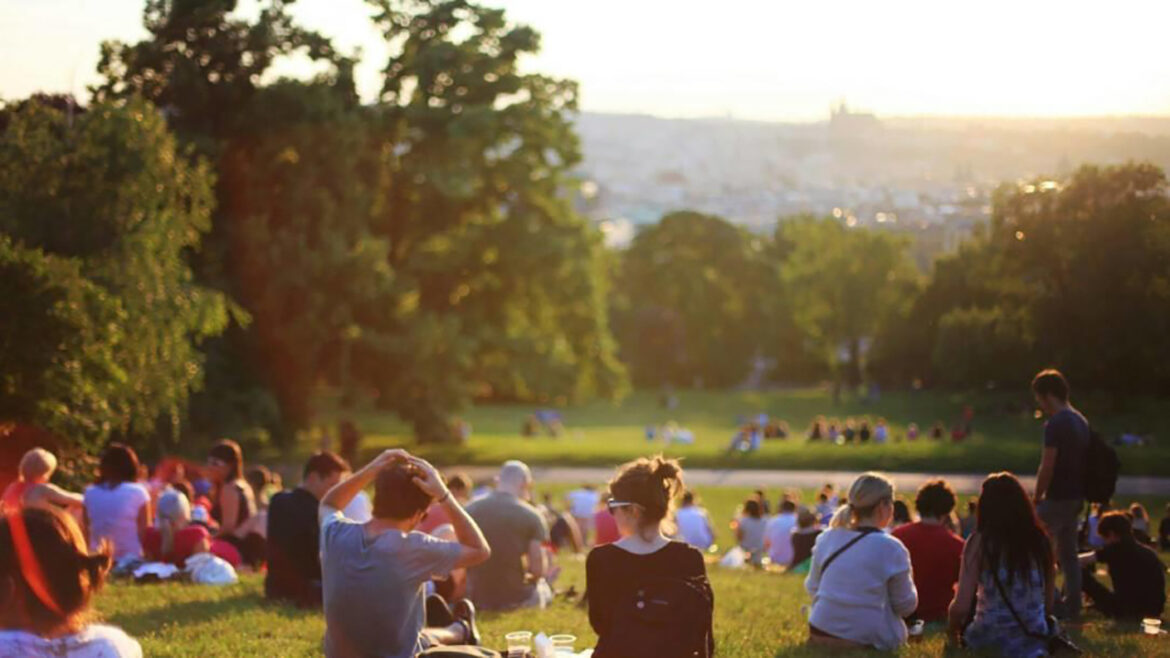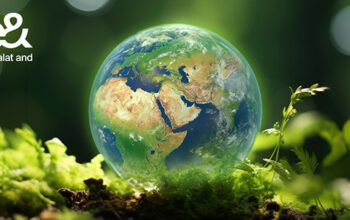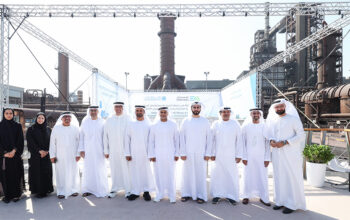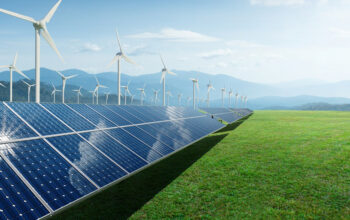- Veolia’s Ecological Transformation Barometer reveals an increase in the number of Saudi residents who perceive climate disruption risk to be serious and immediate.
- Therefore they are requiring urgent action to preserve the region’s precious ecosystem.
Riyadh, Saudi Arabia; 07 June 2024: The survey found that 86% of Saudi residents in 2024 believe that climate change is real, compared to 59% in 2022, indicating a growing acknowledgment of climate change within the population. These findings are part of the second edition of the Barometer of Ecological Transformation, a biennial survey conducted by Veolia in partnership with Elabe to understand the world’s views on existing solutions for addressing the triple challenges of climate change, biodiversity loss, and pollution.
The positive increases in belief and awareness regarding climate change and ecological transformation in Saudi Arabia between 2022 and 2024 reflect the efforts in the Kingdom as well as the region to prioritize sustainability and an emissions-free future – underscored by two COPs being held in the region, the UAE’s Year of Sustainability Initiative, and the Saudi Green Initiative.
However, challenges persist, highlighting the ongoing need for more concentrated efforts towards sustainable solutions. According to the latest edition of the survey, the perception of climate disruption risk being serious and immediate increased from 56% in 2022 to 67% in 2024, showing a heightened awareness of the urgency of addressing climate issues. Also 58% of Saudi residents think that the future is still in our hands, and we can still limit climate disruption and pollution.
The findings further demonstrate the need to formulate clearer visions for a sustainable future, with 57% of respondents finding it difficult to imagine what daily life could be like if a global ecological transformation is achieved. It also highlights the need for rapid action through the impact of climate change in Saudi Arabia, including pollution-related illnesses (52%), increase of infectious diseases (49%), ecosystem degradation (47%), property damage from natural disasters (49%), and migration due to pollution and climate factors (43%).
In an encouraging sign of progress, 78% of respondents in Saudi Arabia believe that there is sufficient discussion about implementing solutions to mitigate pollution and climate disruption. Acceptance rates for green solutions have greatly improved, with recycling initiatives and water treatment receiving moderate support while significant acceptance is evident in adopting measures like consuming food (68%) and water (58%) grown from recycled water.
This exclusive study aligns well with Veolia’s 2024-2027 strategic plan GreenUp, which aims to stimulate innovation and growth to depollute, decarbonize, and regenerate our resources. The drivers behind the GreenUp strategy will uniquely position Veolia to meet the challenges raised in the recent survey.
Pascal Grante, CEO of Veolia Middle East, said: “Confronting numerous challenges on the environment, Veolia’s commitment to drive forward for transformative action is demonstrated in our GreenUp strategic plan, with the focus on three strategic pillars: decarbonization, decontamination, and regeneration of natural resources. The results of the Ecological Transformation Barometer for Saudi Arabia underline the significance of this approach and highlight the urgent need for accessible and functional solutions to protect human health and preserve our planet’s resources. We are encouraged by the survey’s findings and are committed to support the region in its efforts toward ecological transformation by partnering with local and global stakeholders to accelerate the adoption of sustainable practices and solutions that protect and preserve our environment.”
KSA highlights:
- 52% of Saudi residents said they feel exposed and vulnerable to pollution-related illnesses
- 49% of Saudi residents said they feel exposed and vulnerable to increase of infectious diseases
- 49% of Saudi residents said they feel exposed and vulnerable to property damage from natural disasters
- 43% of Saudi residents said they feel exposed and vulnerable to migration due to pollution and climate factors
- 86% of Saudi residents in 2024 believe that climate change is real, compared to 59% in 2022
- 58% of Saudi residents think that the future is still in our hands, and we can still limit climate disruption and pollution
- A majority of Saudi residents would consume food (68%) and water (58%) grown from recycled water
Globally, the Barometer revealed that more than 66% of the world is gripped by ecological fears, with respondents feeling vulnerable to risks linked to climate change and pollution. The findings highlight widespread recognition of climate change (89%) and a prioritization of health over cost in decisions regarding water, waste, and energy (97%), with two-thirds foreseeing greater costs from inaction and expressing openness to health-centric solutions despite potential cost increases.
The survey was conducted in 26 countries across 5 continents, involving over 29,500 people. Collectively, these countries represent nearly 60% of the world’s population, 67% of global greenhouse gas (GHG) emissions, and 77% of global GDP.








